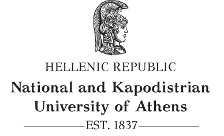HEALTH PSYCHOLOGY
1st semester
Learning objectives
This course aims to introduce students to the basic theoretical approaches of health and illness from a psychosocial perspective. The course covers theories and research from both clinical and social health psychology. By successfully completing the course, students are expected to:
- Understand the contribution of psychology to the interpretation of health and illness.
- Adopt a bio-psychosocial approach to analyzing health and illness.
- Know the socio-cognitive models in understanding and predicting health behaviors.
- Recognize the role of social representations in attitudes towards health.
- Become aware of needs and characteristics of specific social groups (vulnerable population groups) that require special approaches and care.
- Understand the psychological challenges of living with chronic illness.
- Develop communication skills related to Health Clinical Psychology.
Course Content
The course examines ways of acquiring and maintaining good health, the perception and experience of illness, and people's efforts to successfully cope with the challenges they face due to illness and the pursuit of medical care.
The course is structured into two main units:
A. Socio-psychological and cultural aspects of health/illness. This unit explores the psychological, social, and cultural factors that influence perceptions of health and illness, the behaviors that promote health, and the socio-cognitive factors that influence them. The role of health psychology in health behaviors, such as regular check-ups and preventive measures for infectious diseases, HIV/AIDS, cancer, cardiovascular diseases, is presented. Specific sub-topics include:
- Introduction to health psychology
- Cognitive representations of illness
- Socio-cognitive models of health behavior
- Social representations of health and illness
- Health behaviors (pre-symptomatic screening, prevention of infectious diseases, HIV/AIDS, cancer, cardiovascular diseases, etc.)
B. Clinical Applications: This unit examines the psychological processes and reactions related to illness and the clinical skills of health professionals and human caregivers. The role of psychological interventions in the management of individuals with health problems is explored. How individuals cope with and manage illness and how these processes can be influenced at both individual and societal levels are discussed. The comparative effectiveness of clinical interventions is also explored. Specific sub-topics include:
- The challenges of chronic illness in daily life
- Use of theory to understand factors supporting psychological adaptation to chronic illness
- Probing into intervention strategies to improve psychological adaptation in individuals affected by chronic illness
- Effective communication skills related to Health Clinical Psychology
